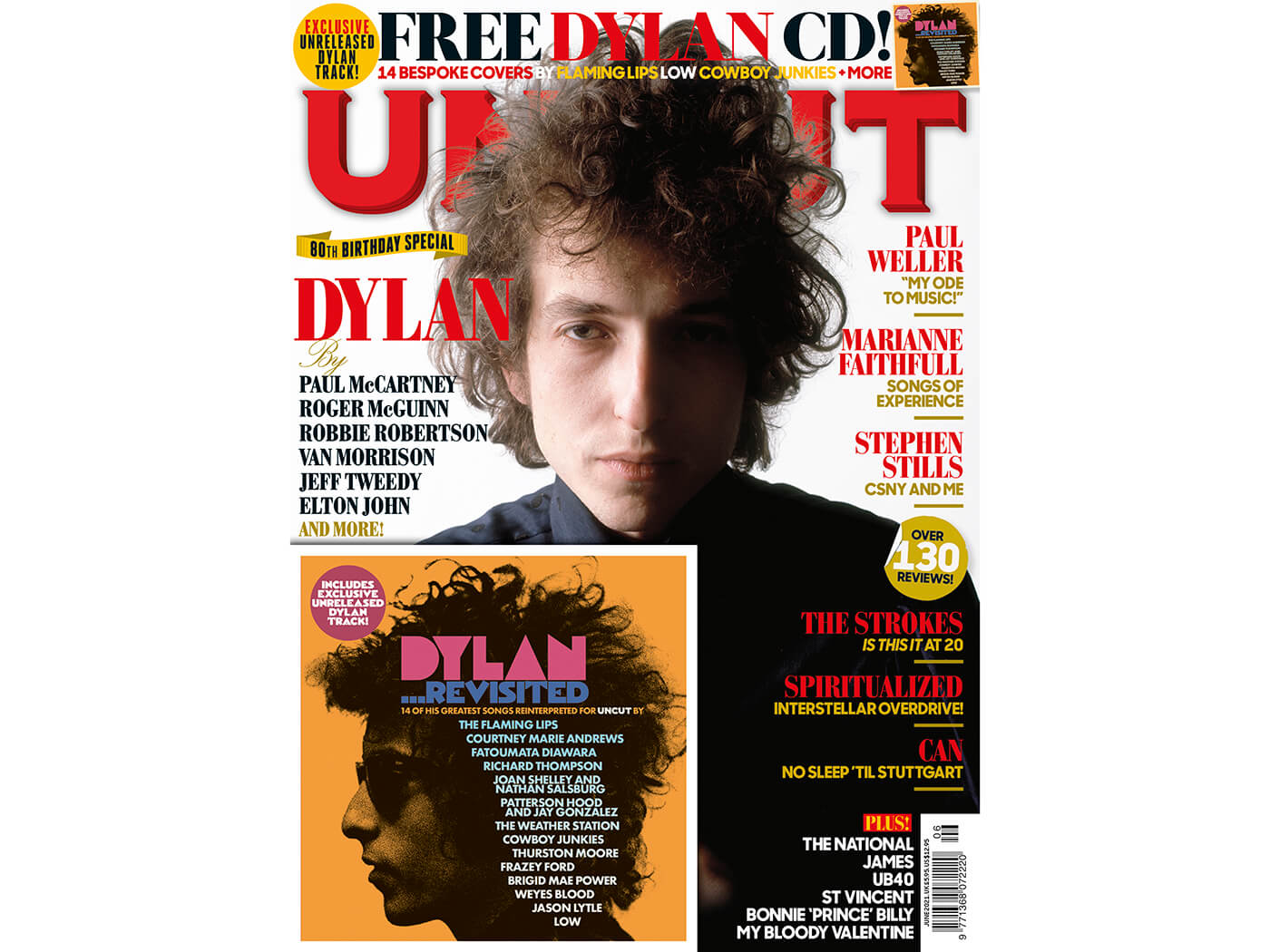From Uncut’s June 2021 issue (Take 289). As she prepares to release her 22nd studio album, She Walks In Beauty, rock’s grand dame discussed recovery, Romantic poetry and how the ’60s weren’t all they were cracked up to be…
The old St Joseph’s Convent School, a red-bricked, broad-lawned building founded by the Sisters of St Marie Madeleine Postel, lies close to the centre of Reading. Marianne Faithfull first came here at the age of eight. By sixth form, her main enthusiasm was English Literature. “I sat somewhere near the middle – near the front, but not exactly at the front,” she says. “It wasn’t a very big class, but it was very important to me.”
This Spring, Faithfull releases her 22nd studio album, She Walks In Beauty, a spoken-word collection of some of her favourite Romantic poetry, scored by the composer and multi-instrumentalist Warren Ellis, with contributions from Nick Cave, Brian Eno and Vincent Ségal. It is a crowning moment in her career; the product of a long-held ambition to interpret works by Keats, Shelley, Tennyson and their contemporaries that she has carried close since St Joseph’s. Cave calls it “the greatest Marianne Faithfull album ever. And that’s saying something.” Ellis, meanwhile, describes it to Uncut as “this incredible thing, this kind of wonder. This little bit of a miracle.”
On a midweek afternoon, Faithfull, 74, is at home in Putney, south-west London, batting away questions about ’60s infamy to recall the formative influence of Palgrave’s Golden Treasury and her English teacher, Mrs Simpson.“She was very ordinary, she had white hair and glasses,” she says. “But she was really, really good. I liked her so much, and she taught me all this stuff about the Romantics. She taught me for that first year, and then of course I was torn away, and I was discovered…”
The story of how Marianne Faithfull was discovered – a teenage ingénue fêted by the in-crowd and caught up with the Stones, then duly lost to scandal and addiction, has coloured much of her career. For a long time, the popular imagination carried her as a kind of tragic muse, a victim of her own beauty and the era’s excesses. Later it recast her as a fighter, a treasure, an artist of indefatigable spirit.
Today, she sounds determined and faintly amused. She has a deeply fragrant voice, grown a little hoarse following a serious altercation with Covid that kept her in hospital for several weeks last spring. “I got terribly ill. I don’t really remember it, but apparently I almost died,” she says. “I managed not to die.”
Still, the effects of the illness have lingered – she warns we might have to conduct our interview in segments, to allow her breaks to recalibrate. “It’s been very hard to cope with,” she explains. “Particularly my lungs, because I used to smoke, and I have of course got emphysema or whatever they call it now.” She pauses. “It’s got another name, and that’s the big problem – my memory, and the fatigue. I’m sorry, I shouldn’t be talking about this! Not the point!”
The point is that before she contracted Covid, Faithfull had begun work on She Walks In Beauty. “When I came out of hospital I finished it,” she says. “I was worried: would I be able to do it? But I was, amazingly enough. It’s a miracle, really. It’s beautiful, because the ones I did post-Covid are very, very vulnerable and that’s kind of lovely.”
FIND THE FULL INTERVIEW FROM UNCUT JUNE 2021/TAKE 289 IN THE ARCHIVE





